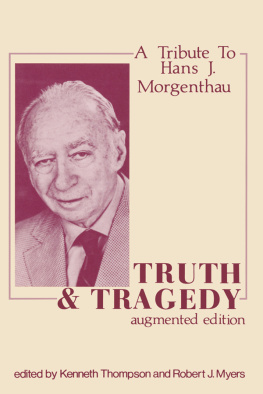THE EARLY SOCIOLOGY OF CULTURE
THE EARLY SOCIOLOGY OF CULTURE
VOLUME I
Old World Traits Transplanted
Robert E. Park and Herbert A. Miller
VOLUME II
The Taxi-Dance Hall: A Sociological Study on Commercialized Recreation and City Life
Paul G. Cressy
VOLUME III
The Mind and Society
Part One: Non-Logical Conflict
Vilfredo Pareto
VOLUME IV
The Mind and Society
Part Two: Analysis of Sentiment
Vilfredo Pareto
VOLUME V
The Mind and Society
Part Three: Sentiment in Thinking
Vilfredo Pareto
VOLUME VI
The Mind and Society
Part Four: The General Form of Society
Vilfredo Pareto
VOLUME VII
The Elements of Folk Psychology: Outlines of a Psychological History of the Development of Mankind
Wilhelm Wundt
VOLUME VIII
Culture and Progress
Wilson D. Wallis
First published 1932 by The University of Chicago Press
This edition published 2003 by Routledge
2 Park Square, Milton Park, Abingdon, Oxon, OX14 4RN
Simultaneously published in the USA and Canada
by Routledge
270 Madison Ave, New York NY 10016
Routledge is an imprint of the Taylor & Francis Group
Transferred to Digital Printing 2007
Copyright 1932 by the University of Chicago.
Editorial Matter and Selection 2003 Kenneth Thompson.
Typeset in Times New Roman by Keystroke, Jacaranda Lodge, Wolverhampton
All rights reserved. No part of this book may be reprinted or reproduced or utilised in any form or by any electronic, mechanical, or other means, now known or hereafter invented, including photocopying and recording, or in any information storage or retrieval system, without permission in writing from the publishers.
British Library Cataloguing in Publication Data
A catalogue record for this book is available from the British Library
Library of Congress Cataloging in Publication Data
A catalog record for this book has been requested.
ISBN 0415279739 (Set)
ISBN 0415279755 (Volume II)
Publishers Note
The publisher has gone to great lengths to ensure the quality of this reprint but points out that some imperfections in the original book may be apparent.
THE MAKING OF SOCIOLOGY
Founding editor: Bryan S. Turner, University of Cambridge
Series editor: Kenneth Thompson, Open University
THE EARLY SOCIOLOGY OF CLASS
Edited with a new introduction by Bryan S. Turner
8 volume set
THE EARLY SOCIOLOGY OF RELIGION
Edited with a new introduction by Bryan S. Turner
9 volume set
SOCIAL THEORIES OF THE CITY
Edited with a new introduction by Bryan S. Turner
THE EARLY SOCIOLOGY OF THE FAMILY
Edited with a new introduction by Bryan S. Turner
10 volume set
ORIENTALISM: EARLY SOURCES
Edited with a new introduction by Bryan S. Turner
12 volume set
THE EARLY SOCIOLOGY OF HEALTH AND ILLNESS
Edited with a new introduction by Kevin White
6 volume set
THE EARLY SOCIOLOGY OF CULTURE
Edited with a new introduction by Kenneth Thompson
8 volume set
THE EARLY SOCIOLOGY OF MANAGEMENT AND ORGANISATIONS
Edited with a new introduction by Kenneth Thompson
8 volume set
THE TAXI-DANCE HALL
THE TAXI-DANCE HALL
A Sociological Study in Commercialized Recreation and City Life
BY PAUL G. CRESSEY
Formerly Special Investigator, Juvenile
Protective Association
THE UNIVERSITY OF CHICAGO PRESS
CHICAGO ILLINOIS
FOREWORD
It is gratifying indeed to an organization like the Juvenile Protective Association of Chicago when community conditions about which it is especially concerned become the subject for extensive study and research. Paul G. Cressey while serving as a caseworker and special investigator for the Juvenile Protective Association was requested during the summer of 1925 to report upon the new and then quite unfamiliar closed dance halls. This book is in a sense the outgrowth of those assignments. While our interpretation of the taxi-dance hall problem may not coincide entirely with Mr. Cresseys, this possibility does not make us less appreciative of the great contribution he has made.
Mr. Cresseys initial investigations revealed, as do other studies, the complexities which social agencies face in the urban situation, when in the interests of young people they are called upon to control and regulate doubtful social centers. His reports indicated clearly that certain amusement places came into existence because of our lack of social resources and that only through increased experimentation and study can we learn to meet more wholesomely the needs which call the taxi-dance hall into existence.
Social agencies have failed signally to take community conditions into account, and even when such a point of view has been accepted, there has been little effort to analyze and interpret these conditions. Case work has not yet been applied to the community. Few social agencies realize the importance or have the resources for eternal vigilance and for this very necessary research and experimentation. If the experience and case material of other agencies could be utilized and interpreted as Mr. Cressey has here done, these studies should make possible not merely intelligent regulation and control butwhat is of far greater importancethe substitution of wholesome acceptable social centers, commercial, as well as private and municipal, to meet the recreational needs of young people.
JESSIE F. BINFORD, Executive Director
Juvenile Protective Association
INTRODUCTION
The taxi-dance hall is almost unknown to the general public. What little is reported in the press, by social workers, and by exploring visitors is colorful, but damning and shocking. Little wonder that crusades have been directed against the taxi-dance hall in several American cities, and that it has been outlawed in the city of its origin, San Francisco.
The campaign against the taxi-dance hall has run true to the traditional American pattern of reform, namely, reaction to the external aspects of a situation without any real understanding of the social forces underlying its origin and growth.
The present study, undertaken under the assumption that knowledge should precede action, had a threefold purpose. The first object of the inquiry was to give an unbiased and intimate picture of the social world of the typical taxi-dance hall with its owner and manager, with its bevy of pretty, vivacious, and often mercenary instructresses, with its motley array of patrons: Orientals, older men, isolated and socially handicapped youth, eager for association with feminine beauty at a dime a dance.
The second purpose of the study was to trace the natural history of the taxi-dance hall as an urban institution, to discover those conditions in city life favorable to its rise and development, and to analyze its function in terms of the basic wishes and needs of its male patrons.





